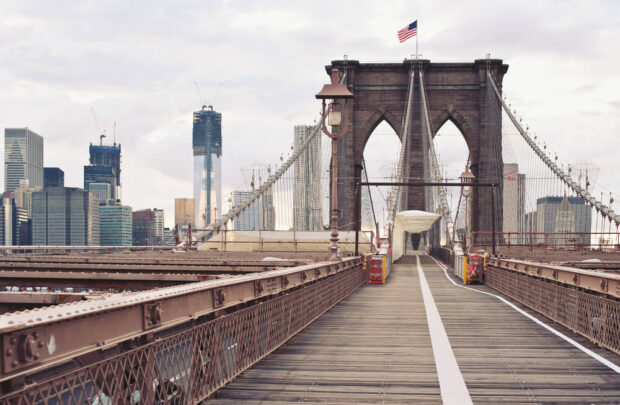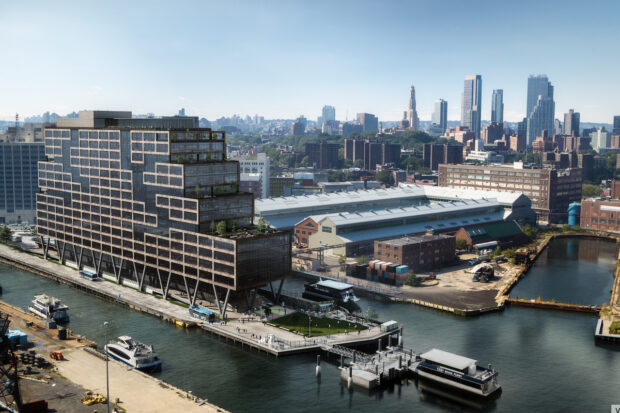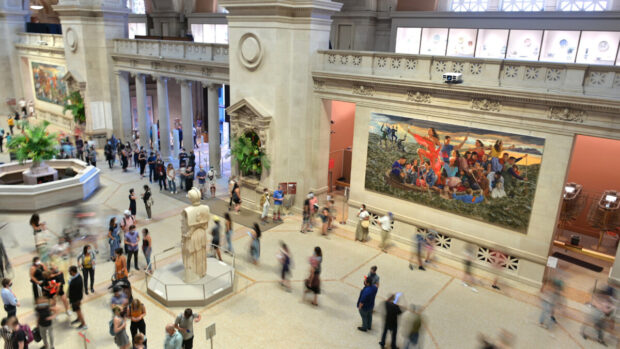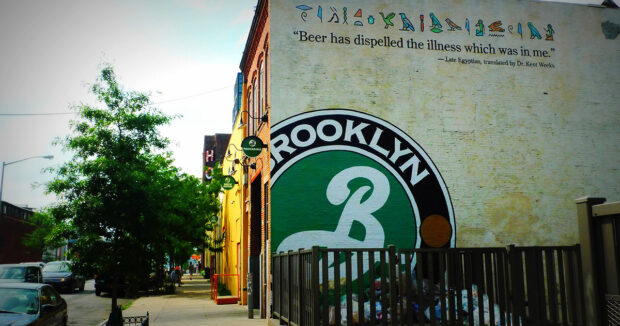
Known in the past as a disadvantaged and impoverished neighborhood, Brooklyn is now the most densely populated district in New York City. If Brooklyn wasn’t today, it might have been one of the top four cities in the United States. The residents of this district therefore often call themselves Brookline, causing ridicule of the residents of the rest of «Big Apple».
A long time ago, Brooklyn was home to the Canarsie Indian tribe, which fished and farmed the land. By the early 1600s, Dutch colonists had arrived and settled the area. In the next 400 years, the rural, picturesque landscape of the area gave way to urbanization, and over time, the area became the Brooklyn that we know today – one of the most densely populated areas in the United States.
READ The City Under the Earth: The History of the New York Subway
Brooklyn originally consisted of six separate Dutch cities known as Gravesend, Breuckelen, New Amersfoort (now Flatlands), Midwout (at the time of Flatbush), New Utrecht, Boswijck (at the time of Bushwick). It is not difficult to guess that the name of the present-day New York City district came from the name of one of these settlements, the Breukelen, which was located on the bank of the East River. In translation «Breukelen» means «uneven land».
In 1664, the English conquered the Dutch and gained control of Manhattan and Brooklyn. That’s when he becomes part of the New York colony.
Settlements began to expand, and in 1854 Brooklyn became a city. Over the 18th century, Brooklyn developed as part of New York City.

In 1801, the Brooklyn Navy Yard opened. Shortly after, in 1814, the Nassau steamer between Brooklyn and Manhattan began operating. Brooklyn’s economy is growing and growing.
READ One perfect day: 24 hours in New York City
Green-Wood Cemetery was established in 1838. Twenty years later, in 1859, the Brooklyn Conservatory opened. Prospect Park opened to the public in 1867, and one of Brooklyn’s most famous landmarks was the Brooklyn Bridge built-in 1883.

In 1897, the Brooklyn Museum opened, while the Brooklyn Institute of Arts and Sciences was established. In 1898, Brooklyn merged with New York City and became one of its five districts.
The reason for the merger was the appearance of the majestic Brooklyn Bridge connecting Long Island with Manhattan. Interestingly, though Brooklyn is a part of it, it looks like a city itself, which is not the case with the Bronx, for example.
When Williamsburg Bridge opens in 1903, it becomes the largest hanging bridge in the world. Five years later, in 1908, the city’s first subway runs trains between Brooklyn and Manhattan. In 1909, the Manhattan Bridge was completed. Decades later, the first skyscraper was built in Brooklyn (1930). The area is under construction and the construction of bridges is continuing.
Due to geographical conditions, Brooklyn grew not in height, but in width. It’s probably why he looks like the average American city today.
READ New York Architecture: Unusual Beauty and Best Architects
Today, unlike Manhattan, Brooklyn is a more residential and «bedroom» neighborhood.
It is home to approximately 100,000 immigrants from various parts of the world: Russians, Asians, and Hispanics. Immigrants try to unite, thus forming ethnic areas: Borough Park – Jewish settlement, Bensonhurst is an Italian district, Puerto Rican neighborhood in Sunset Park.
Brownsville and Bedford-Stuyvesant are poor neighborhoods, mostly inhabited by African-Americans.
East of Brooklyn, they look terrible! Ordinary residential streets in this part of the county look like small two-story houses or apartment buildings. The poverty of the disadvantaged neighborhoods of Brooklyn contrasts with the splendor and luxury of Manhattan, whose residents are constantly trying to stay out of the neighborhood. But poverty is not the only vice of Brooklyn, the criminal «fame» is another black spot on his reputation.

Since its launch in 1988, the Brooklyn Brewery has been a major success … from its inception as a small manufacturer of a limited range of craft beer, now the 21st largest brewery in the United States and the 12th largest brewery in the United StatesI’m the largest brewery in the United States of America. A series of crate breweries.
While the brewery avoids the traditional marketing campaign (prefers more subtle techniques such as the old rumor), America (and the world in this regard) seems unable to saturate its soap offerings. In fact, we now consider it one of New York’s finest attractions. Brooklyn Brewery intends to expand due to expansion projects in Japan and Brazil.
Brooklyn Brewery was founded in 1988 by his friends Steve Hindi and Tom Potter. Hindi had already become acquainted with the brewery profession after traveling to the Middle East as a foreign correspondent to Associated Press. Upon returning to the United States, Hindi teamed up with her Park Slope neighbor, Tom Potter, to found a brewery. Realizing the value of a strong logo, the duo hired renowned graphic designer Milton Glasser (best known for the campaign «I Love New York» and the famous psychedelic poster of Bob Dylan)to come up with an original and attractive design for your new identity. As a reward for his efforts, Glasser received a small stake in a young company and a promise of free beer for life.
With a name like Brooklyn Brewery, you’d think the brewery was in Brooklyn. Although it may be true today, in the first few years of its life, the brewery had only one connection to Brooklyn: Hindi and Potter themselves. Before moving to Brooklyn in 1998, all beer was brewed by the Matt Brewing Company in Utica, New York, and then shipped to the county by truck and distributed by Hindi and Potter to numerous bars and retailers. Brooklyn.
Like us on Facebook for more stories like this: